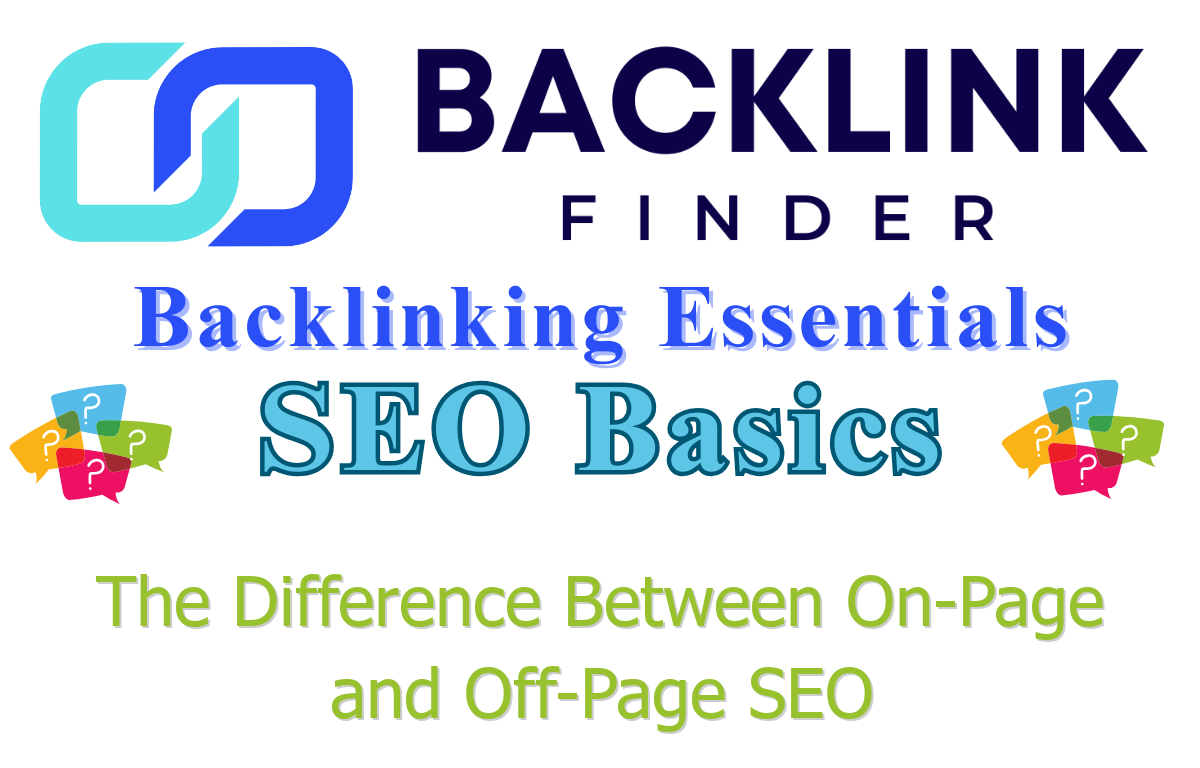The Difference Between On-Page and Off-Page SEO

SEO can feel like a puzzle with too many pieces, but don’t let that scare you off! Two big chunks of that puzzle are on-page SEO and off-page SEO. Wondering what sets them apart? This beginner’s guide spills the beans, breaking down what each one does, why they matter, and how to use them to get your site noticed on Google. Whether you’re starting a blog or tweaking a business page, you’ll see how these two work together to lift your rankings. Let’s jump in!
What Is On-Page SEO?
On-page SEO is everything you do on your website to make it search-engine friendly. It’s like tidying up your house before guests arrive—making sure everything looks good and works right so Google and visitors love what they see.
Think of it as: Your site’s interior design. You control the colors, furniture, and vibe to create a welcoming space.
Key On-Page SEO Elements
Here’s what’s on your on-page checklist:
- Content Quality: Write helpful, clear posts—like a guide on “SEO Basics”—that answer what users want.
- Keywords: Sprinkle words like “SEO tips” in titles, headings, and text, but keep it natural—no overstuffing!
- Meta Tags: Craft catchy titles (under 60 characters) and descriptions (under 160) to grab clicks.
- Site Speed: Make pages load fast—nobody waits for a sluggish site.
- Mobile-Friendliness: Ensure your site shines on phones, a must for Google.
Example: A blog post titled “10 Easy SEO Tricks” with keywords, clear headings, and a snappy meta description ranks higher because it’s optimized on-page. It’s all about what’s in your control!
What Is Off-Page SEO?
Off-page SEO happens outside your website. It’s about building your site’s reputation across the web, like getting shout-outs from others to prove you’re trustworthy.
Think of it as: Your site’s street cred. It’s what people say about you when you’re not in the room—online edition.
Key Off-Page SEO Elements
Here’s what powers off-page SEO:
- Backlinks: Links from other sites to yours, like a blog linking to your “SEO Guide.” Quality beats quantity!
- Social Signals: Shares or mentions on Twitter, LinkedIn, or Instagram boost your visibility.
- Brand Mentions: Even unlinked mentions (like your site’s name in an article) add credibility.
- Guest Posts: Writing for other blogs to earn links and exposure.
Example: A backlink from a popular marketing blog to your homepage signals to Google you’re legit, nudging your rankings up. It’s about who’s vouching for you!
How They Work Together
On-page and off-page SEO are like peanut butter and jelly—different, but better as a team. On-page sets the stage with awesome content and a slick site. Off-page backs it up with links and buzz that scream, “This site’s worth ranking!”
- On-Page: You write a killer post with keywords like “SEO for beginners.”
- Off-Page: You share it via a guest post, earning a backlink that boosts its rank.
Tool Tip: Off-page SEO gets a lift from Backlink Finder. With its 400,000+ marketplace listings, it connects you to guest post opportunities, making link-building a breeze for beginners.
On-page SEO builds the foundation—content, keywords, speed. Off-page seals it with links and trust. Both matter, so don’t skip either! https://t.co/8mXyPqR4vZ— Lily Ray 😏 (@lilyraynyc)
Why Both Matter for Rankings
Search engines like Google juggle tons of signals to rank sites. On-page and off-page SEO each play a starring role:
- On-Page SEO: Makes your site clear and user-friendly, so Google knows what you’re about and visitors stick around.
- Off-Page SEO: Builds your site’s authority, proving to Google it’s trusted by others, which lifts rankings.
Quick Insight: A site with great content but no backlinks struggles to rank, just like a site with links but poor content flops. Balance is key!
Getting Started with On-Page and Off-Page SEO
Eager to try? You don’t need to be an expert. Here’s how beginners can dip their toes:
- On-Page: Write a post like “SEO for Blogs” with a keyword in the title and text. Check it loads fast using Google’s PageSpeed Insights.
- Off-Page: Share your post on social media or pitch a guest post via Backlink Finder to snag a backlink.
- Track It: Peek at Google Search Console to see if clicks grow—small wins add up!
Pro Tip: Start with one page. Optimize it, get a link, and watch it climb. You’ve got this!
Common Mistakes to Avoid
Steer clear of these slip-ups to keep your SEO on track:
- On-Page: Don’t stuff keywords—it annoys readers and Google. Aim for natural flow.
- Off-Page: Skip spammy links; one quality backlink beats 50 bad ones.
- Both: Ignoring mobile users or slow pages hurts rankings fast.
Lily Ray’s tweet nails it: both on-page and off-page need love to make your site soar.
Further Reading
- Moz: On-Page SEO Guide
- Ahrefs: Off-Page SEO Basics
- Search Engine Land: On-Page vs. Off-Page SEO

